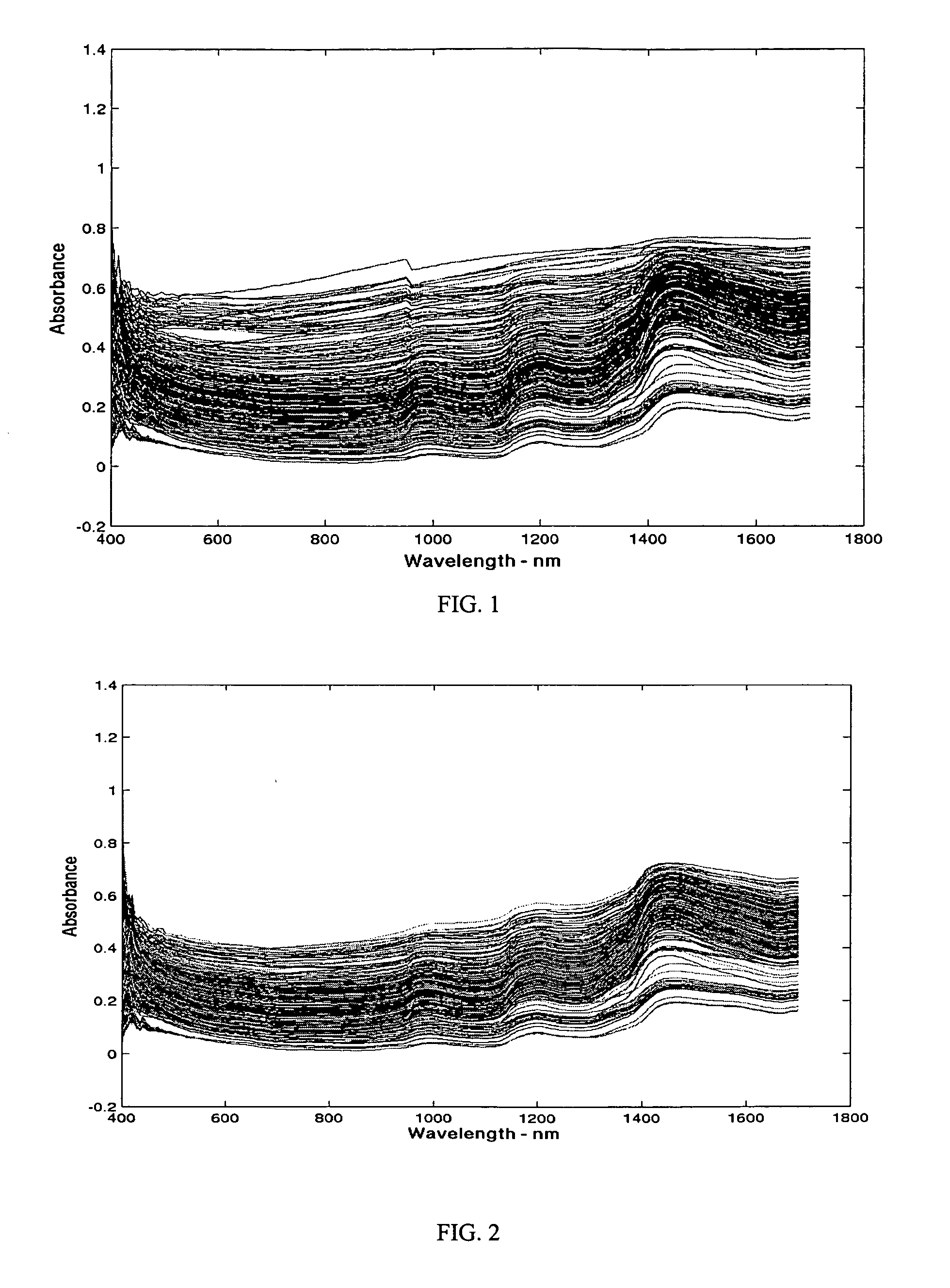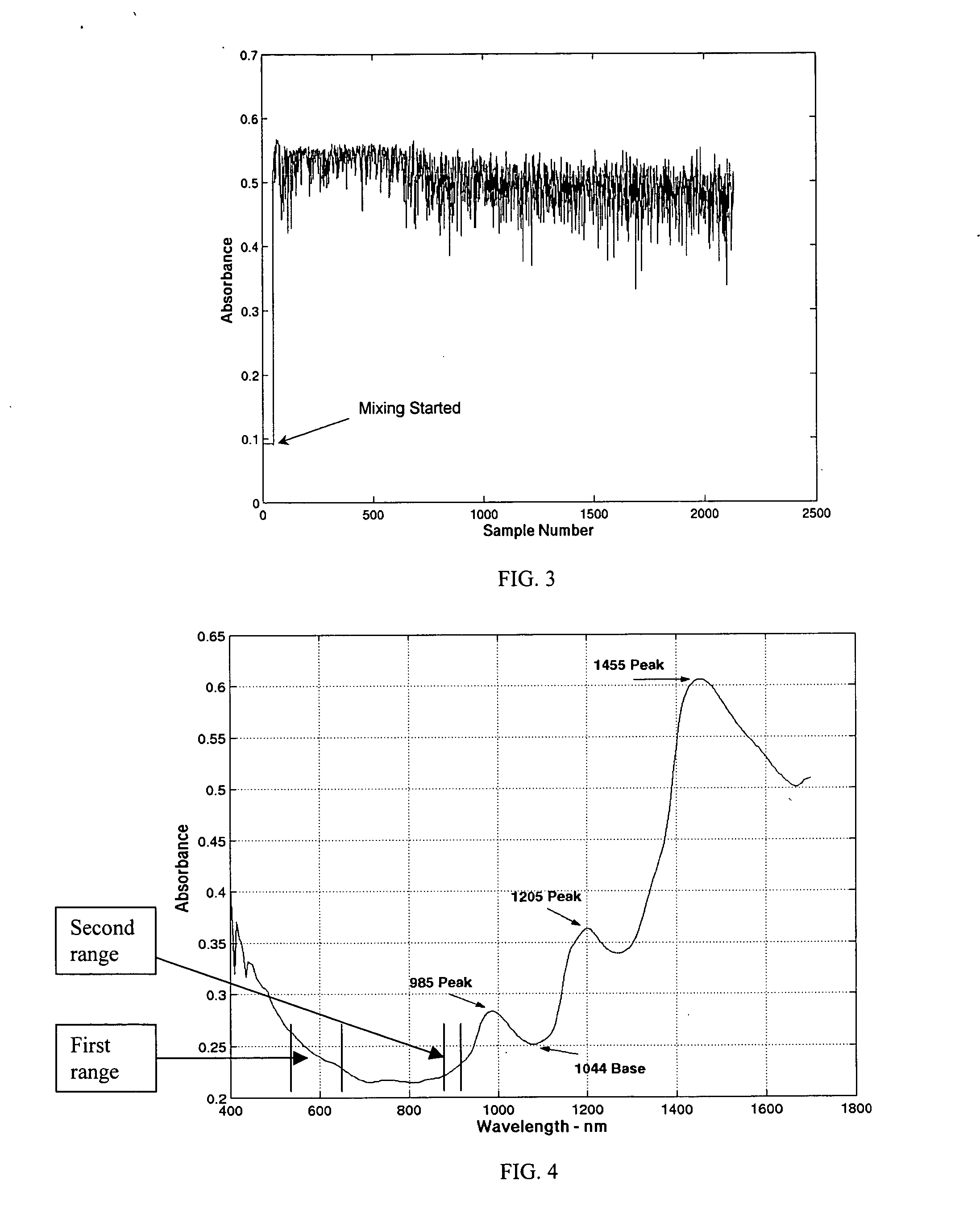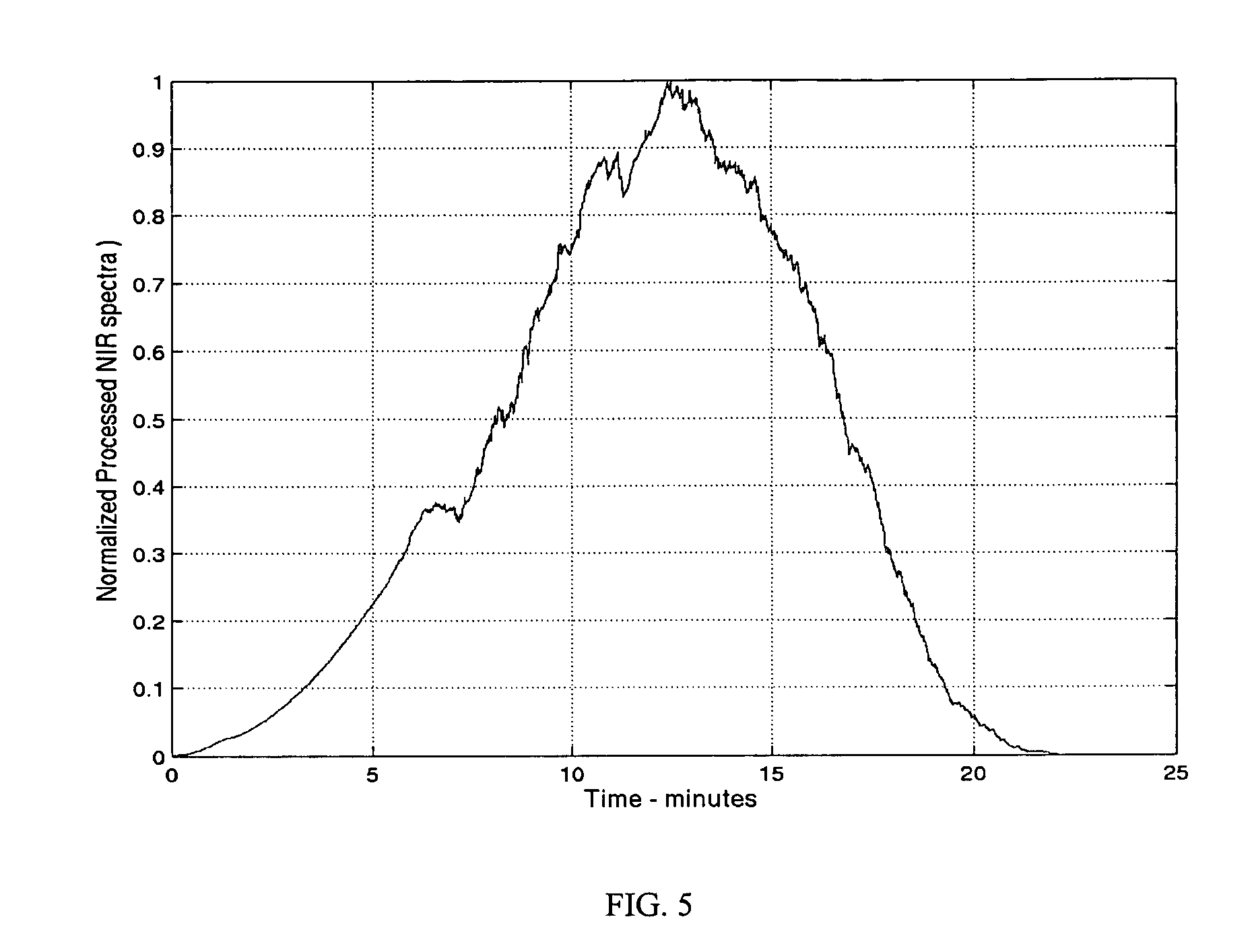Determination of dough development using near infrared radiation
a technology of near infrared radiation and dough, which is applied in the direction of mixing/kneading structural elements, instruments, bakery products, etc., can solve the problems of loss of efficiency and/or productivity, and the measurement of dough characteristics based on chemical interactions is more difficult than those based on physical properties, so as to achieve quick and inexpensive testing
- Summary
- Abstract
- Description
- Claims
- Application Information
AI Technical Summary
Benefits of technology
Problems solved by technology
Method used
Image
Examples
example
[0020] In this specific example of estimating dough development time, a dough was formed by mixing together for a period of time dough-forming ingredients including a particular wheat flour. Specifically, the wheat flour tested was 1100 grams of King Midas flour, which is commercial spring wheat flour from ConAgra's Omaha facility. The dough was the type utilized to make white pan bread and included of 100% flour, 7% sugar, 2% salt, 3% shortening, 2% yeast, and variable water (baker's percent).
[0021] Near infra-red radiation was directed on a sample of the dough such that the radiation interacted with the sample. The radiation was directed through a NIR / VIS spectrometer, specifically a “DA-7000 NIR / VIS” spectrometer manufactured by “PERTEN INSTRUMENTS”, coupled with a “LABTRON” mixer system equipped with a “HOBART” mixer having a double helical agitator and a jacketed “MCDUFFEE” bowl. The bottom of the bowl was modified to include a window in its base, which allowed NIR to pass int...
PUM
| Property | Measurement | Unit |
|---|---|---|
| specific absorbance wavelengths | aaaaa | aaaaa |
| specific absorbance wavelengths | aaaaa | aaaaa |
| wavelengths | aaaaa | aaaaa |
Abstract
Description
Claims
Application Information
 Login to View More
Login to View More - R&D
- Intellectual Property
- Life Sciences
- Materials
- Tech Scout
- Unparalleled Data Quality
- Higher Quality Content
- 60% Fewer Hallucinations
Browse by: Latest US Patents, China's latest patents, Technical Efficacy Thesaurus, Application Domain, Technology Topic, Popular Technical Reports.
© 2025 PatSnap. All rights reserved.Legal|Privacy policy|Modern Slavery Act Transparency Statement|Sitemap|About US| Contact US: help@patsnap.com



